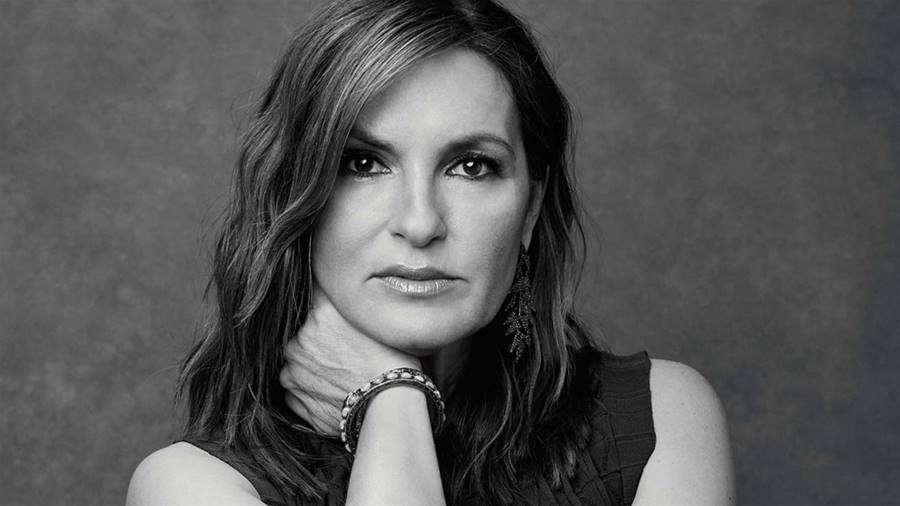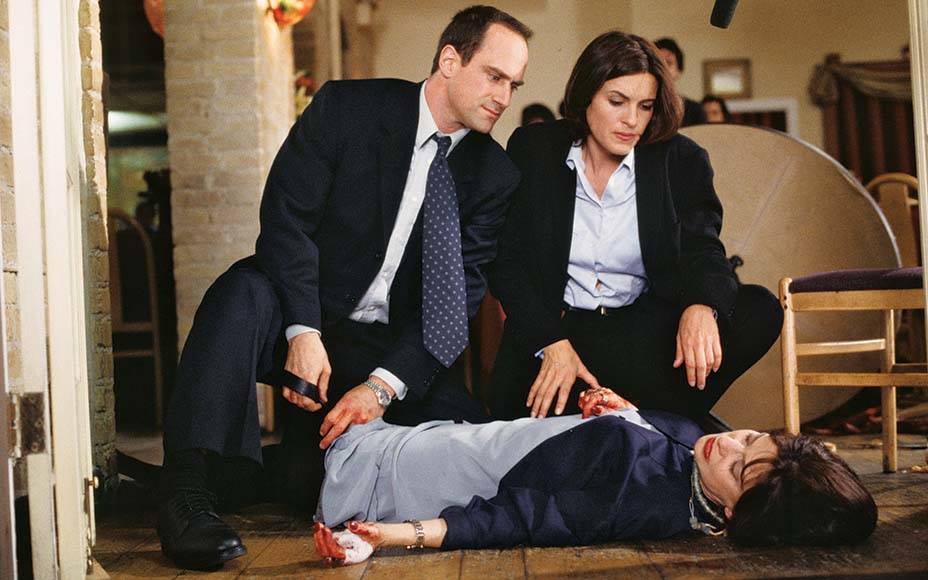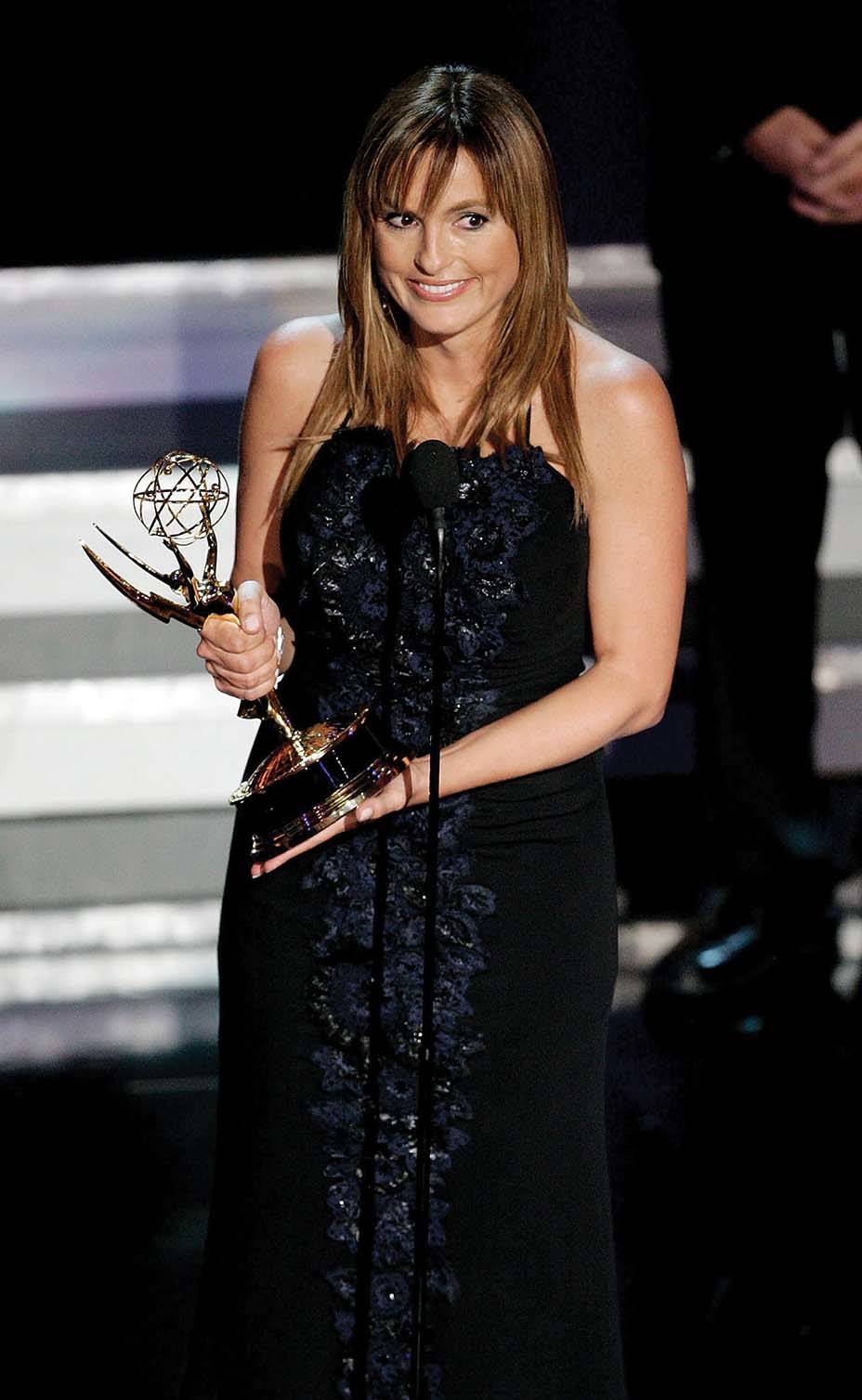

A nanny hands her young charge, a 1-year-old girl in Gucci sneakers. “Her mother loves you,” says the woman, as she steps back and holds up her phone for a photo. It’s an oppressively humid September afternoon, and Hargitay and the crew of NBC’s are shooting at a Manhattan park. More nannies with more babies approach. “I watch you every night,” says one.
You would not hand your baby to just any TV star.
“No, you wouldn’t — but they trust me,” says Hargitay, 55. “People can hand me their babies all day long. That’s just one of the perks of my job.” It’s a job the daughter of Mickey Hargitay (a Hungarian-born actor and 1955’s Mr.
Universe) and Jayne Mansfield (who was killed in a car accident when Mariska, asleep in the back seat, was just 3) has been doing for a long time — 21 seasons as of Sept. 26, making the longest-running TV drama ever (Dick Wolf’s mother ship made it to 20).
The role of Olivia Benson, who has risen from detective to a lieutenant in her NYPD unit, has changed Hargitay’s life in big and small ways. She met her husband, star Peter Hermann, on the show in 2002 (they have three children ages 8 to 13). In 2004, she founded the Joyful Heart Foundation, becoming a powerful advocate for survivors of sexual assault and domestic violence.
Hargitay has become an icon of empathy and a pop culture touchstone whose legions of fans include Taylor Swift (they met in 2014 at an Ingrid Michaelson concert). In 2014, she began directing and in 2016 was made an executive producer on . She is now among the highest-paid actor-producers on television, earning a reported $450,000 per episode. “When I walk down the street and people say, ‘I knew what to do because of watching your show. I knew not to shower. I reported immediately. I took myself to the hospital instead of saying forget it, forget this ever happened,’ ” she says, “that’s what I’m most proud of.
” Recalling the show’s evolution, its star also reveals her own.
***

HARGITAY: I remember getting the pilot script; it was called at the time. I had just come off [she had an arc on season four]. And I always thought that I would go into comedy, that’s what I loved. My agent said, “Listen, this show, it’s very dark. I don’t know if it’s up your alley.” But then I read it. And I went, “Wait, this is what we’re going to talk about every week?” I remember feeling so passionately about it, and not scared of it, weirdly.
Then the show went on the air and I started to get the fan letters. And that’s when everything changed for me. These women were disclosing their stories of abuse. I was just absolutely floored. On , it was like: “Hey, I love your show. What’s it like working with George Clooney?” Now it was: “I’ve never told anyone this before, but my father’s been raping me since I was 6.” Letter after letter after letter. And the same thing that was happening in these letters was happening on the street with women disclosing: “Oh my gosh, thank you. It happened to me, I never told anyone.”
The themes of the letters were shame and isolation and so much suffering — private, excruciating suffering alone.
I have boxes full of them. I actually hired rape crisis counselors to help me respond. I was on my honeymoon as I was formulating Joyful Heart and I had seven rape crisis counselors with me. Peter was heroic. (.) I didn’t know anything about foundations or advocacy. I just was a young person with a lot of motivation and passion to figure out how to respond. If this many people were reaching out, there was definitely a huge need.

The show has gotten better, more responsible, more aware, more thoughtful.
We’re pretty careful. And we tell such a whole story. We don’t have a perfect record, but we don’t mess up too often. On the whole, all of us — writers, producers and actors — have respect for the subject matter as a bottom line. Yes, we solve crimes quicker than detectives in the real world. Yes, the wheels of justice in the real world turn more slowly than they do on our show. We’re not shooting a documentary every week. But I don’t think that we linger on the lurid details of a crime for the sake of enhancing the drama of an episode.
